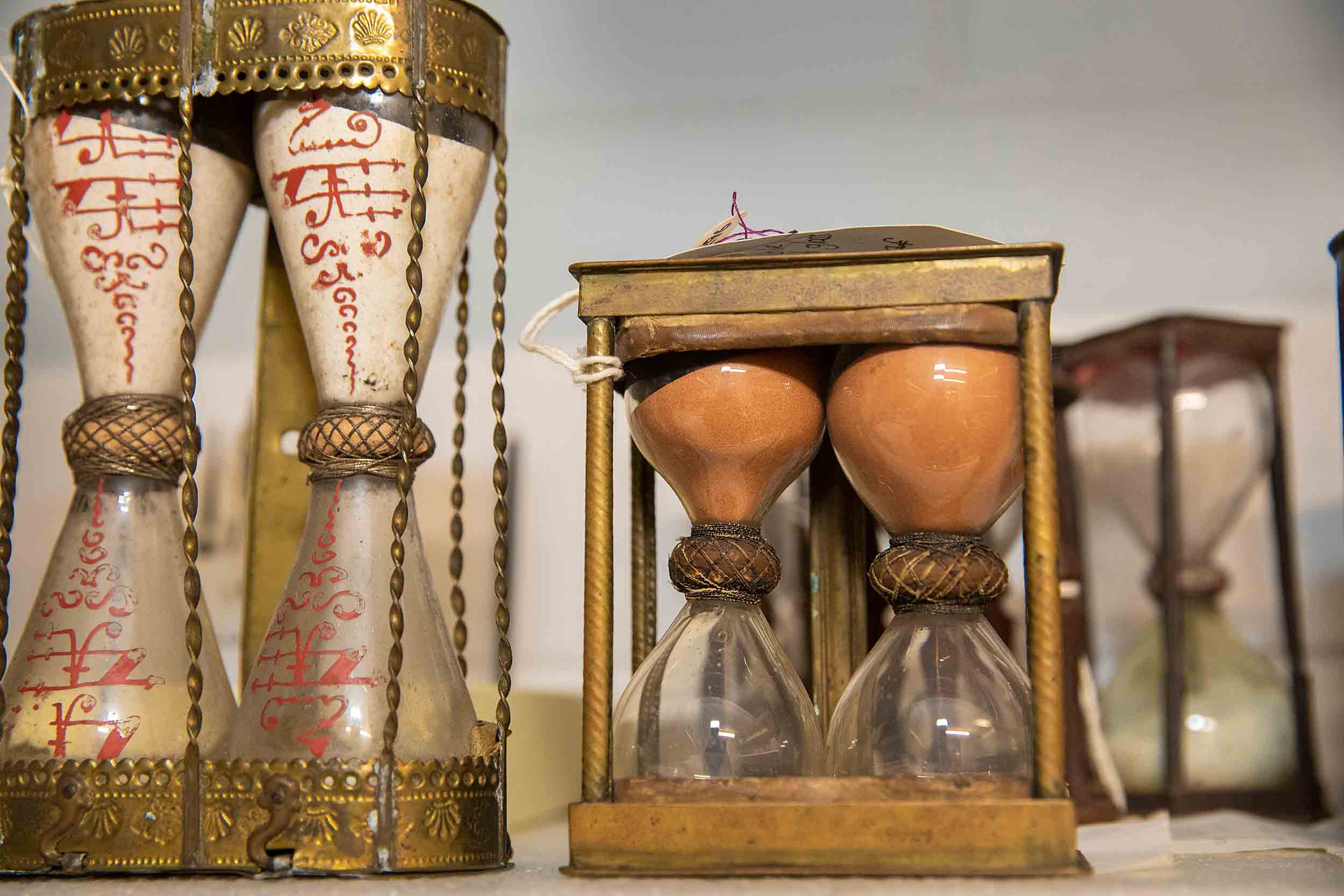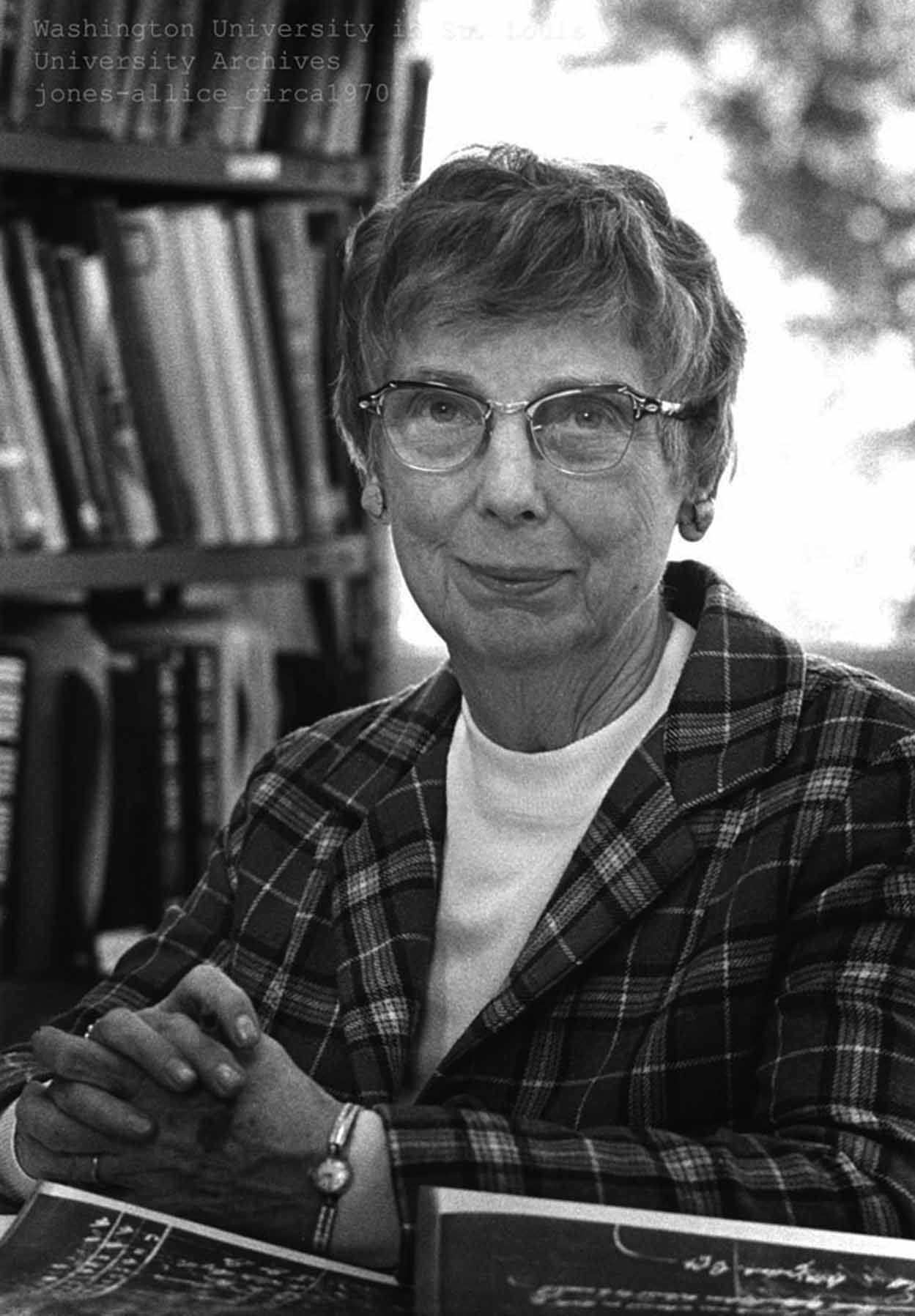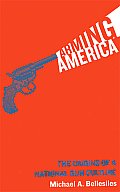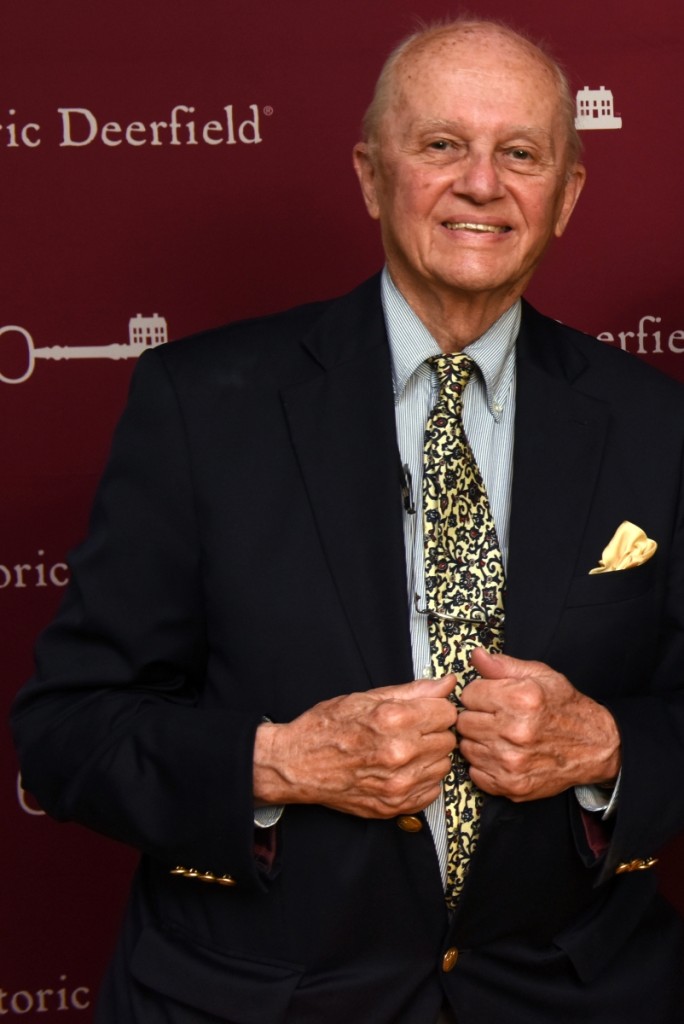At nine o’clock the recently elected members of the Massachusetts General Court met in the chapel of Harvard Hall. The Council chosen a year before sat upstairs in the “Philosophy Chamber”—the room where Harvard College kept its advanced scientific instruments (such as the half-hour and hour glasses shown here).
The representatives of all the towns in the province (the towns that had chosen to send representatives, that is) showed their credentials and swore the Oath of Abjuration, promising allegiance to the Protestant Hanoverian dynasty instead of the Catholic Stuarts.
The house chose its clerk. Every member voted for Samuel Adams. Not only did that job grant Adams some sway over the business of the house, but it also provided the income that let him maintain his family in genteel style.
Next the house chose its speaker. Again the vote was unanimous, reelecting Thomas Cushing. He had served since 1766, a strong Whig but not a radical. Still, the acting governor had the power to nix that choice.
Back in April, Cushing had been ill, and the previous house had to choose a temporary replacement. The legislators voted for John Hancock. Hutchinson vetoed him. (The house then chose James Warren of Plymouth, who was acceptable and would also become the speaker in his own right in the summer of 1775.)
On this day, the Boston Gazette reported:
About Ten o’Clock His Honor the Lieutenant-Governor [Thomas Hutchinson], being escorted by his Troop of Guards from his Seat at Milton, arrived at Harvard-College, and being in the Chair, a Committee of the House presented the Speaker elect to his Honor, who afterwards sent a Message in Writing, agreeable to the Royal Explanatory Charter, that he approved of their choice.People were thus in a more agreeable mood when they recessed. At eleven o’clock everybody walked over to the town’s main meetinghouse, “preceded by the first Company in Cambridge of the Regiment of Militia, commanded by the Hon. Brigadier [William] Brattle.”
The Rev. Samuel Cooke, minister out in the western village of Menotomy, preached a sermon titled The True Principles of Civil Government. He worked from 2 Samuel 23:3-4, beginning: “HE that ruleth over Men, must be just, ruling in the fear of GOD.” Unlike the Rev. Dr. Charles Chauncy, who spoke in Boston that same morning, Cooke didn’t speak about the most incendiary issues of the day, such as the Boston Massacre. He criticized a royal governor, but it was Edmund Andros, ousted in 1692.
Nonetheless, Cooke ventured onto controversial ground by raising a new issue:
I trust, on this occasion, I may, without offence—plead the cause of our African slaves; and humbly propose the pursuit of some effectual measures, at least, to prevent the future importation of them.All the officials then went back to Harvard Hall for midday dinner—“an Entertainment,” the Gazette said. I wouldn’t be surprised if some of the servants who prepared or served that dinner were enslaved.
Difficulties insuperable, I apprehend, prevent an adequate remedy for what is past.
Let the time past more than suffice, wherein we, the patrons of liberty, have dishonored the christian name,—and degraded human nature, nearly to a level with the beasts that perish.
Ethiopia has long stretched out her hands to us—Let not sordid gain, acquired by the merchandize of slaves, and the souls of men—harden our hearts against her piteous means.
In the afternoon, the house became more confrontational. It approved a remonstrance to the acting governor for convening the legislature in “any Place, other than the Town-House in Boston.” A committee headed by Hancock went to deliver it. They came back and reported that “his Honor was not in the Chair.” Hutchinson had left the building.
Under formal protest, the house proceeded to choose the new Council in the usual way. They invited the sitting Council to come down to the chapel, and then as a body the men voted for eighteen Councilors from the old Massachusetts Bay colony, four from the old Plymouth colony, four from Maine, and two at large. This list included all eleven men that Gov. Francis Bernard had vetoed the previous year.
The next morning, 250 years ago today, the house convened again. Lt. Gov. Hutchinson was back, so Hancock’s committee got to deliver their remonstrance. The house then presented its list of Councilors for the acting governor’s approval.
Hutchinson approved all the elected Councilors but two: Hancock and Jerathmeel Bowers of Gloucester. One member, Joseph Gerrish of Newbury, declined to serve. Those three men remained in the house. Some members elected to the house, such as James Bowdoin and James Otis, Sr., now departed for the Philosophy Chamber, perhaps pleasantly surprised at the governor’s assent. Eleven towns, including Boston, would have to hold new elections.
Both legislative houses for the upcoming year now complete, Lt. Gov. Hutchinson called all the members upstairs. He delivered a speech about the priorities of reducing the public debt and heading off unimportant petitions. The acting governor concluded:
I wish for a happy Harmony in the Legislature, and I will most readily concur with you in every Measure you shall propose, as far as can consist with my Duty to the King, and the Regard I bear to the Interest of the Province.Of course, there was still the matter that the General Court was meeting in Cambridge, not Boston.
TOMORROW: The response to the remonstrance.
















